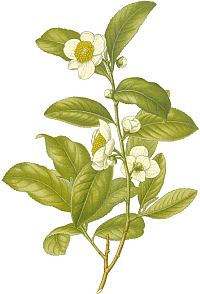 Jerky, uncontrolled movements, an unsteady walk, and grimaces gave Huntington’s disease (HD) its original common name – Huntington’s chorea (Old Greek for “dance”). It’s an uncommon and incurable disease that is passed on among family members. There are about 8,000 cases in Germany, and 30,000 people have HD in the U.S.
Jerky, uncontrolled movements, an unsteady walk, and grimaces gave Huntington’s disease (HD) its original common name – Huntington’s chorea (Old Greek for “dance”). It’s an uncommon and incurable disease that is passed on among family members. There are about 8,000 cases in Germany, and 30,000 people have HD in the U.S.
In 1993, scientists discovered that a mutation in a gene causes HD. Now, the first steps in developing treatment are being made with a component in green tea.
The results of laboratory research by Dr. Erich Wanker of the Max Delbr?ck Center for Molecular Medicine in Germany reveal that epigallocatechin-3-gallate (EGCG), extracted from green tea, interferes with very earliest protein abnormalities that lead to HD.
In addition, the movements of flies that carry the Huntington’s gene improve when fed EGCG.
Yes. I know what you’re thinking.
This is the earliest of early research. So, what?
But I think it’s promising, not only for HD, but as an example of the integration of complementary treatments into mainstream medicine.
The essential steps are identification and isolation of the active ingredient in the herbal. This is followed by the scientific process of experimentation and then applying what is learned to healthcare through the use of well designed studies in patients.
Research by Dr. Erich Wanker on the “active component” in green tea is no different than the research done by Alexander Fleming in 1928 that lead to the discovery of penicillin from mold.
9/9/06 9:53 JR